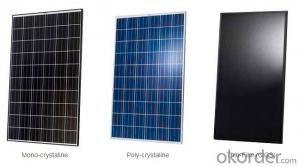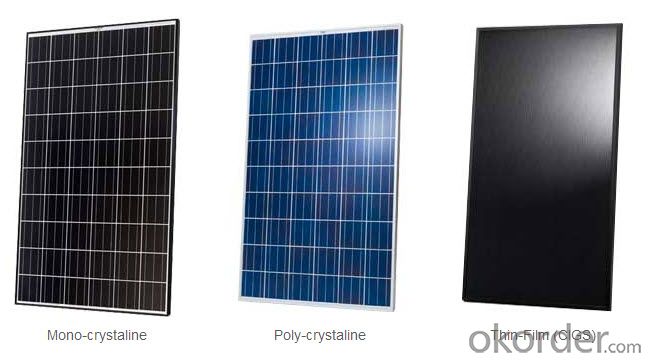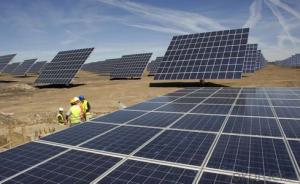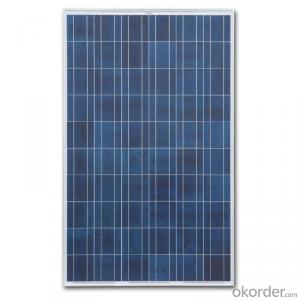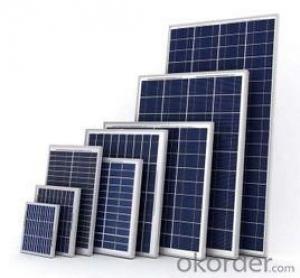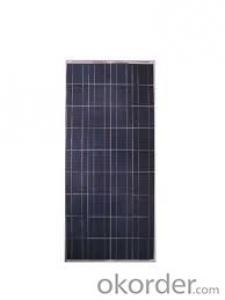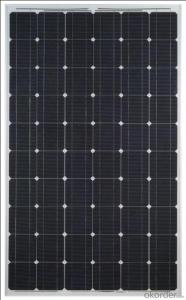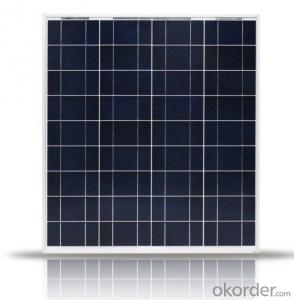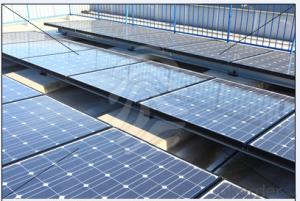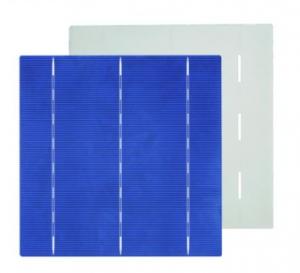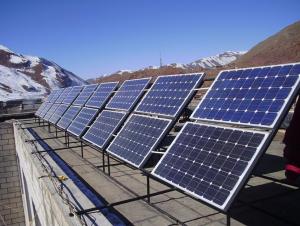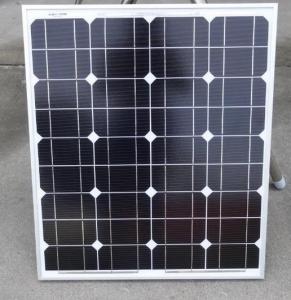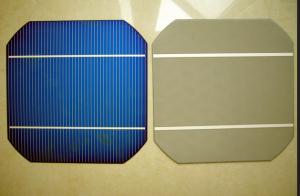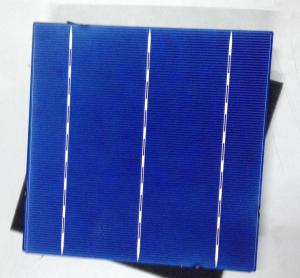240w Organic Dye Solar Panel with 25 Years Warranty CNBM
- Loading Port:
- Qingdao
- Payment Terms:
- TT OR LC
- Min Order Qty:
- 10 set
- Supply Capability:
- 300000 set/month
OKorder Service Pledge
OKorder Financial Service
You Might Also Like
Polycrystalline Solar Modules
CNBM offers a range of small, medium and large polycrystalline solar modules, designed for a range of requirements.
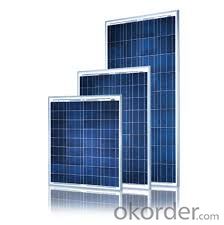
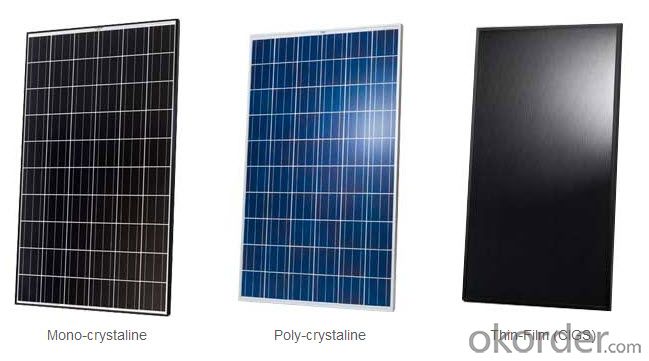
Specifications:
Tolerance | +/-3% |
Cell | Polycrystalline silicon solar cells (156 x 156mm) |
N0. of Cells | 60 (10 x 6) |
Dimension of Modules (mm) | 1650 x 990 x 40 |
Weight (kg) | 25.5 |
Limits:
Operating Temperature | -40~+85? |
Storage Temperature | -40~+85? |
Maximum System Voltage | 1000 VDC max. |
Hail Impact | Diameter of 28mm with impact speed |
Temperature and Coefficients:
NOCT | 48C+/-2? |
Voltage temperature coefficient (%/K) | -0.35 |
Current temperature coefficient (%/K) | 0.05 |
Power temperature coefficient (%/K) | -0.45 |
Characteristics:
Model: | SGM-200P | SGM-210P | SGM-220P |
Max-power voltage Vmp (V) | 29.2 | 29.4 | 29.41 |
Max-power current Imp (A) | 6.85 | 7.14 | 7.48 |
Open-circuit voltage Voc (V) | 36.5 | 36.69 | 36.9 |
Short-Circuit Current Isc (A) | 7.28 | 7.6 | 7.93 |
Max-power Pm(W) | 200 | 210 | 220 |
Model: | SGM-230P |
Max-power voltage Vmp (V) | 29.8 |
Max-power current Imp (A) | 7.72 |
Open-circuit voltage Voc (V) | 37.31 |
Short-Circuit Current Isc (A) | 8.19 |
Max-power Pm(W) | 230 |
STC: Irradiance 1000W/m2, module temperature 25?, AM-=1.5
Poly Crystalline Solar Panels Specifications Range
Maximum Power (Pm) | Dimension | Weight | Operating Voltage (Vmp) | Operating Current (Imp) | Open Circuit Voltage (Voc) | Short Circuit Current (Isc) |
0.45W | 140x80x10mm | 0.08kg | 3.3V | 150mA | 4.6V | 160mA |
1.0W | 162x140x10mm | 0.16kg | 7.5V | 150mA | 10.3V | 160mA |
4.5W | 269x251x23mm | 0.8kg | 16.5V | 0.27A | 20.5V | 0.3A |
10W | 420.1×268.9×22.6mm | 1.92kg | 17.5V | 0.58A | 20.5V | 0.6A |
20W | 425x502x50mm | 3.0kg | 16.8V | 1.19A | 21.0V | 1.29A |
30W | 593x502x22.6mm | 3.9kg | 16.8V | 1.78A | 21.0V | 1.94A |
40W | 655x537x50mm | 5.75kg | 17.3V | 2.31A | 22.1V | 2.54A |
50W | 839x537x50mm | 6.0kg | 17.5V | 2.9A | 21.8V | 3.17A |
65W | 1111x502x50mm | 7.2kg | 17.6V | 3.69A | 22.1V | 3.99A |
80W | 1204x537x50mm | 7.7kg | 17.6V | 4.55A | 22.1V | 4.8A |
- Q: Can solar cells be used in hybrid systems?
- Yes, solar cells can be used in hybrid systems. Hybrid systems typically combine multiple sources of energy, such as solar and wind power, to generate electricity. Solar cells can play a crucial role in such systems by harnessing solar energy and converting it into electrical power, which can be used alongside other energy sources to meet the electricity demand. This integration of solar cells in hybrid systems helps enhance energy efficiency, reduce reliance on conventional sources, and promote sustainable energy solutions.
- Q: What is the impact of solar cells on reducing noise pollution from power generation?
- Solar cells have a minimal impact on reducing noise pollution from power generation since they operate silently, unlike traditional power plants that emit noise during operation.
- Q: How do solar cells handle electrical noise or interference?
- Solar cells are not affected by electrical noise or interference as they directly convert sunlight into electricity without relying on external sources of power or signals. They operate independently and are not susceptible to the same issues that can disrupt other electrical systems.
- Q: Can solar cells be used for powering remote sensors?
- Yes, solar cells can be used for powering remote sensors. Solar cells convert sunlight into electricity, making them a reliable and sustainable source of power for remote applications. They are commonly used to provide continuous power to sensors in remote locations, where access to the electrical grid may be limited or non-existent.
- Q: Can solar cells be used for lighting?
- Yes, solar cells can be used for lighting. Solar cells convert sunlight into electricity, which can be used to power lighting systems. This can be done by directly connecting the solar cells to the lighting fixtures or by storing the generated electricity in batteries for later use. Solar-powered lighting systems are environmentally friendly and can be a cost-effective solution for outdoor lighting, street lighting, and even indoor lighting in areas with limited access to electricity.
- Q: Can solar cells be used to power communication systems?
- Yes, solar cells can be used to power communication systems. Solar cells convert sunlight into electricity, which can be used to power various devices, including communication systems. This is especially useful in remote areas or during emergencies where access to traditional power sources may be limited. Additionally, solar-powered communication systems are environmentally friendly and sustainable.
- Q: Can solar cells be used in remote areas with no access to electricity?
- Yes, solar cells can be used in remote areas with no access to electricity. Solar cells convert sunlight into electricity, making them an ideal solution for areas with no grid connection. They can provide a reliable source of power for various applications, including lighting, charging electronic devices, and running small appliances, thereby improving the lives of people in remote areas.
- Q: How long does it take to make a solar cell?
- Solar cell requires the sunlight to be made eventually, so if it's not sunny at all, it will take you much longer than you thought.
- Q: Can solar cells store energy for later use?
- No, solar cells cannot directly store energy for later use. They can only convert sunlight into electricity in real-time. However, the generated electricity can be stored in batteries or other energy storage systems for later use.
- Q: Which brand of the solar cells is sold with the lower price on the market? Which brand is more practical for the countryside?
- Well, it depends on how many and how big is your project. The more you want, the cheaper it is.
Send your message to us
240w Organic Dye Solar Panel with 25 Years Warranty CNBM
- Loading Port:
- Qingdao
- Payment Terms:
- TT OR LC
- Min Order Qty:
- 10 set
- Supply Capability:
- 300000 set/month
OKorder Service Pledge
OKorder Financial Service
Similar products
Hot products
Hot Searches
Related keywords
